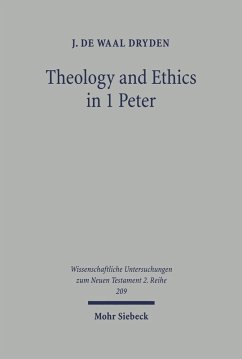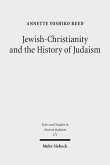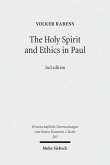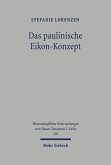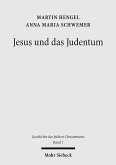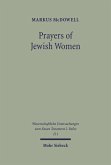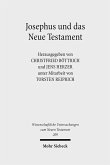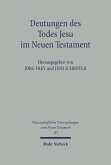J. de Waal Dryden seeks to develop a hermeneutic for 1 Peter that integrates theology and ethics while reading the epistle in the context of ancient epistolary practices. Both these agendas are accomplished by recognizing 1 Peter as a paraenetic epistle, analogous to paraenetic epistles typical of the Greco-Roman philosophic schools. Recent research into Greco-Roman paraenetic literature has demonstrated that both the aims and literary/rhetorical strategies to realize those aims have deep resonances with the aims and rhetorical strategies of NT epistolary literature. The author seeks to further this research into Greco-Roman paraenetic epistles and to apply it to 1 Peter. He takes up with explorations of typical paraenetic strategies and demonstrates how analogous strategies function in 1 Peter. He does not confine paraenesis simply to an ethical form, but understands paraenesis as a genre that incorporates many forms (ethical, philosophical, even narrative). This means that doctrine, whether in Seneca or 1 Peter, can function as paraenesis, to serve paraenetic aims of strengthening readers in their beliefs and in the practice of those beliefs. In 1 Peter the whole of the epistle, theology and ethics, functions as paraenesis. Thus, theology and ethics function together to foster growth in practical wisdom and practical dependence upon God. Born 1967; B.E.E., M.Div., Th.M., 2004 Ph.D. (Cambridge); since then working with L'Abri Fellowship in Greatham, England.
Dieser Download kann aus rechtlichen Gründen nur mit Rechnungsadresse in A, B, BG, CY, CZ, D, DK, EW, E, FIN, F, GR, HR, H, IRL, I, LT, L, LR, M, NL, PL, P, R, S, SLO, SK ausgeliefert werden.

